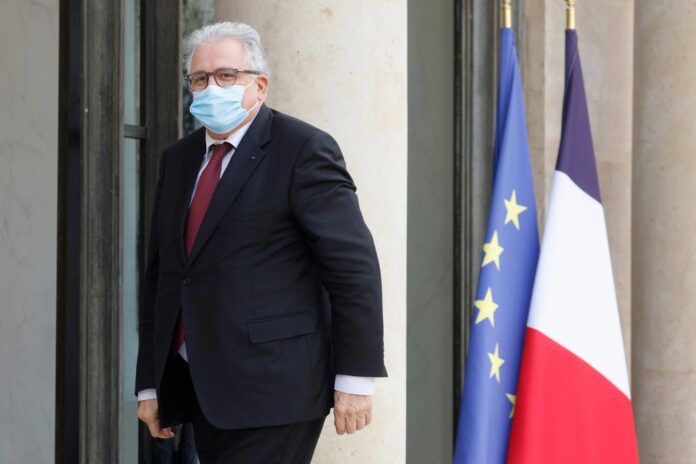LONDON: An increase in anti-Islam rhetoric in France’s presidential election campaign risks creating a “spiral of hatred” and scapegoating law-abiding Muslims in a similar fashion to the vocal attacks on Jews in the 1930s, the rector of the Grand Mosque of Paris has said.
Speaking to British newspaper the Guardian, Chems-eddine Hafiz expressed concern that Muslims are being portrayed as “the problem of a whole society.”
“We’re in a society that is fractured and searching for itself, a society that is weakened and fearful after the pandemic. The fact of looking for a scapegoat — there have been precedents to that: In 1930, when the finger began to be pointed at Jews who became ‘the problem of a whole society.’ Today it’s no longer Jews, it’s Muslims. I thought in the 21st century we would be safe from that type of discourse,” Hafiz said.
The rector published a book this month titled “With All Due Respect, We’re Children of the Republic,” to challenge what he called heightened anti-Muslim rhetoric sweeping across the French right during the election campaign.
President Emmanuel Macron is leading the polls and is favorite to win re-election next month.
Some of his rivals have focused their campaigns on Islam and immigration.
These include far-right candidate Eric Zemmour, a former TV pundit who has convictions for inciting racial hatred. He frequently refers to the discredited “great replacement” conspiracy theory, in which he claims local French populations could be replaced by newcomers, making France a majority Muslim country.
In an interview last month, Zemmour called on Muslims in France to renounce their religion, and said he was standing to “save France from Islam” and from French people’s “replacement.”
Opinion polls show far-right candidate Marine Le Pen and Macron as the two candidates likely to come out top in the first round of polling on April 10 and go through to the April 24 run-off vote.
Le Pen plans to hold a referendum on immigration and ban the hijab from all public places.
Valerie Pecresse, head of the Ile-de-France region that includes Paris and candidate for the center-right Les Republicains, has also been criticized for referring to the great replacement theory.
She has vowed to limit the wearing of the Muslim headscarf in some public spaces, including by athletes in sporting events.
All right-wing candidates have referred to a mood of fear in France after the 2015 Paris terror attacks and the murder of French schoolteacher Samuel Paty in 2020.
Hafiz said that he was the first to condemn terrorism and his mosque was at the heart of work to counter extremism in France.
However, the rector said he feared that the majority of law-abiding Muslim French citizens were being associated with terrorist attacks, even though they are often victims of terrorism themselves.
“For several years now, at every election in France, certain candidates have spoken of the ‘problem’ of Islam, linking Islam to immigration or to terrorism,” Hafiz said.
“French Muslims have faced stigmatization or insults, or the view that Islam is incompatible with the rules of the French Republic, or with the West. But in this election, it’s much more serious because there is a candidate who completely lets loose and talks of the ‘great replacement,’ and who affirms with vehemence that Islam and Muslims can’t stay in France, that their place is elsewhere, and if they want to stay in this country they must no longer practice their religion.
“We’re in 2022; we’re in the fourth, even fifth, generation of Muslims in France and they are still considered foreigners,” he added.
Hafiz said that it had become “almost fashionable” for presidential candidates “to criticize Islam and Muslims, to see them as non-desirables who are dangerous or bring insecurity.”
The rector added that he feared there could be an increase in anti-Muslim acts after the election as a result of the rhetoric.
Between 800,000 and 1 million people attend mosques or Muslim prayer rooms in France.

